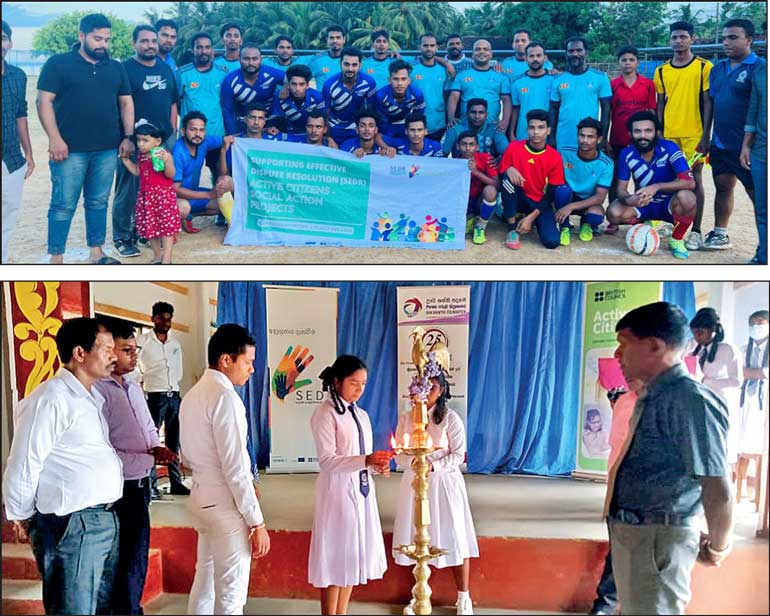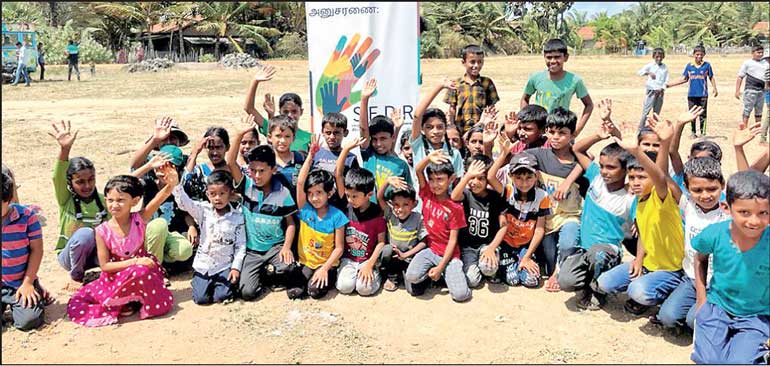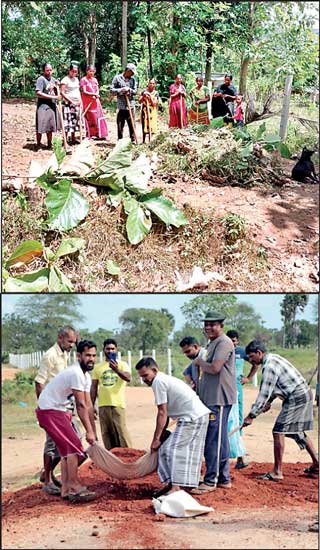Wednesday Feb 25, 2026
Wednesday Feb 25, 2026
Thursday, 11 August 2022 00:00 - - {{hitsCtrl.values.hits}}



Supporting Effective Dispute Resolution (SEDR) is a four-year access to justice project implemented by the British Council and funded by the European Union as part of its Strengthening Transformation, Reconciliation and Inclusive Democratic Engagement (STRIDE) program in Sri Lanka.
Reconciliation and Inclusive Democratic Engagement (STRIDE) program in Sri Lanka.
At the heart of SEDR is the desire for peaceful co-existence and a fair and just Sri Lanka. During December 2021-June 2022, SEDR initiated the design and delivery of three tailor-made SEDR Active Citizens programs which had a strong local dispute resolution and social inclusion focus to address community issues and improve the resolution of community disputes. These programs were conducted in each of SEDR’s three target provinces (North, East and Uva), and the first phase was recently concluded successfully.
Active Citizens is a social leadership training methodology that has been successfully delivered by the British Council around the world for over 10 years promoting intercultural dialogue and community-led social development and building trust within and between communities. The methodology plays an important role in SEDR’s approach to supporting alternative dispute resolution mechanisms in resolving community level disputes.
Together with the support and guidance of CSO partner organisations in each province, the SEDR Active Citizens program worked with participants who went through a five-day training where each day they focused on different aspects of working with a community.
The skills delivered through the training included those on self-awareness of their identity and culture, building confidence and interpersonal relationships, exploring tools and techniques to encourage and facilitate dialogue, problem identification, problem solving, promoting social cohesion and dispute management and leadership.
The SEDR Active Citizens engaged with individuals of diverse interests and skills in a community. They then put these skills into practice through a dedicated community intervention (Social Action Projects), which were designed, managed and implemented within their community with the support of their community from youth volunteers to state and non-state stakeholders. From March to June 2022, the SEDR Active Citizens delivered 15 Social Action Projects which focused on issues and disputes their communities faced, reaching approximately 1,724 beneficiaries.
One of the youth participants from Badalkumbura, of the Monaragala District said, “During the process of my SEDR AC journey, some of the lessons I learned during the workshop was that particularly the conflict tree, forum theatre, as well the role plays are not confined to one single community but applies to all irrespective of which religion or ethnicity they belong to. When I was about to leave the venue, I made it a point to invite my Tamil roommates to visit our Village. I was equally taken up when these friends wanted me and other Sinhala friends to be their guests at their estates.”
SEDR Team leader Jacques Carstens said: “The British Council’s Active Citizens model has proven to be a very good fit for SEDR’s ambition to strengthen community level dispute resolution efforts in Sri Lanka. It is very encouraging to see how women and youth volunteers have grown and benefitted from the Active Citizens approach and used their new-found knowledge and skills to address some of the root causes of conflict that affect their own local communities.”
Using the Active Citizens model, SEDR aims to further build capacity of local youth and women champions through Phase 2 of the SEDR Active Citizens program and support them to deliver social action projects that are inclusive, contextually relevant and effecting positive change in communities of the Northern, Uva and Eastern Provinces of Sri Lanka.